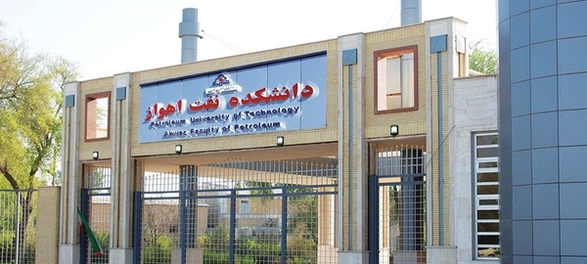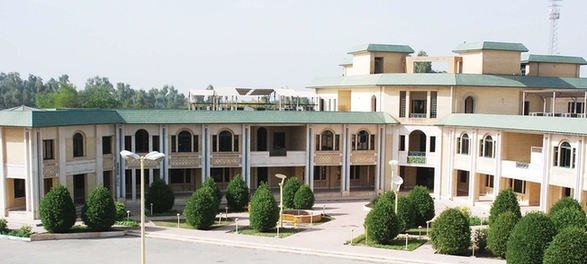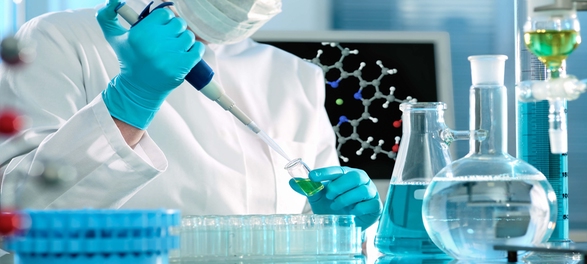INTRODUCTION
Ahwaz Faculty of
Petroleum was established in 1982 to educate engineers in different fields
required by the oil and gas industries. In this faculty, well equipped
laboratories have been established to provide an environment conducive to
research.
Currently, Ahwaz
Faculty of Petroleum admits undergraduate and graduate students in various
fields as follows:
|
Fields of study
|
Levels
|
|
Chemical
Engineering
|
BS, PHD
|
|
Chemical
Engineering – Gas Processing and Transmission
|
MS
|
|
Petroleum
Engineering
|
PHD
|
|
Petroleum
Engineering – Reservoir
|
BS, MS
|
|
Petroleum
Engineering - Drilling
|
BS, MS
|
|
Petroleum
Engineering - Production
|
BS, MS
|
|
Instrumentation
& Automation in Oil Industries
|
MS
|
|
Electrical
Engineering - Control
|
BS
|
|
Mechanical
Engineering
|
BS, MS
|
|
|


 |
Department of Petroleum Engineering
Petroleum engineering is the practical
application of the basic and physical sciences of mathematics, geology, physics,
and chemistry and all of the engineering sciences to the discovery, development,
production, and transportation of petroleum. Petroleum is the most widely used
form of mobile energy and a major raw material from which a wide variety of
products are manufactured.
The petroleum department supervises the
following degree programs and certificates:
·
Bachelor of Science in Petroleum Engineering
·
Master of Science in Petroleum Engineering
·
Doctor of Philosophy in Petroleum Engineering
Department of Gas Engineering
The department of
gas engineering was established in 2001 as a subsidiary of Ahwaz Faculty of
Petroleum. The mission of this department is to assist the National Iranian Gas
Company (NIGC) by
providing a high-quality educated undergraduate and graduate students expert in
natural gas related professions.
It
offers an undergraduate Bachelor of Science (BSc) degree in Chemical
Engineering, a Master of Science (MSc) degree in Gas Processing and Transmission
and a PhD degree in Chemical Engineering. The MSc and PhD degrees offered
in this department contain advanced
theoretical courses in transport phenomena, advanced thermodynamics, natural gas
processing and transmission, reactor design and separation processes. All the
students have to do research on a topic as their thesis under the supervision of
one or more faculty members in the department. Their research topics are usually
chosen from current natural gas industry problems or their future demands.
In this
department, both fundamental and applied researches are done over a broad range
of subjects related to natural gas industries. The main research areas are:
1-
Natural Gas Process Design and Technology
2-
Heat Transfer Phenomena in Gas Industries
3-
Gas Hydrates
4-
Natural Gas Conversion
5-
Gas Separation via Membrane Module
6-
Gas Separation via Adsorption Process
7-
Transport Phenomena and Computational Fluid
Dynamics
The research
environment in the department is extremely pleasant and many activities are done
as team work. The research activities of the department are currently carried
out in three well equipped laboratories of Research Center of Ahwaz Faculty of
Petroleum.
Department of Instrumentation and Automation
The Department of Instrumentation and
Automation (DIA) was founded in 2001 and is part of the Petroleum University of
Technology (PUT). The aim of DIA is to assist the National Iranian Oil Company
(NIOC) through the pursuit of education, and research at the utmost
international levels of distinction. It offers an undergraduate Bachelor of
Science (BSc) degree in control engineering and a Master of Science (MSc) degree
in Instrumentation and Automation Engineering (IAE). The lectures are in English
and the students must attend intensive English language courses prior to
commencing their educational and research programs in the institute.
Teaching in the undergraduate BSc level
is mainly lecture-based, with the students also performing coursework and
laboratory exercises, and attending industrial summer training. The department’s
laboratories focus on electrical measurements, digital electronics and control
systems.
The IAE MSc students are required to
research, design, construct, test and maintain instruments utilized in the
Iranian oil industry. The field also
deals with the development of novel computer-based control algorithms, process
fault diagnosis and process optimization. The graduates frequently work as part
of a team and are needed to know several aspects of the petroleum and chemical
industrial environments.
The associated curriculum is multidisciplinary and includes educational
capabilities in oil production and chemical processing. These offered programs
will enable the students for immediate employment upon graduation
Department of Mechanical Engineering
Mechanical
Engineering is universally considered as the cornerstone of almost all fields of
engineering science. Our academic program can be divided basically into
undergraduate and graduate/post-graduate education. We have always tried to keep
a well-defined and logical balance between our endeavors towards both
undergraduate and graduate programs.
In undergraduate level, the program focuses on
educating and training qualified engineers to commence their profession in
industrial sector and service/commercial sector with high management and
leadership skills. The undergraduate degree
program prepares students for professional practice in an era of rapidly
advancing technology. It combines a strong base in the engineering sciences
(mechanics, materials, fluid and thermal sciences, systems, and control) with
project-based laboratory and design experiences.
The graduate
program leads to M.S. degrees in basic disciplines of mechanical engineering and
various multi-disciplinary fields. We have tried to maintain a dynamic and
adaptive policy in our graduate program in order to keep up with domestic
industry’s research and development needs and rapid global/international
technological progress.
Our faculty
members and research staffs are developing cutting edge projects that include,
onshore and offshore engineering, drilling engineering, energy engineering,
simulation and modeling, from both thermo-fluid and solid mechanics aspects.